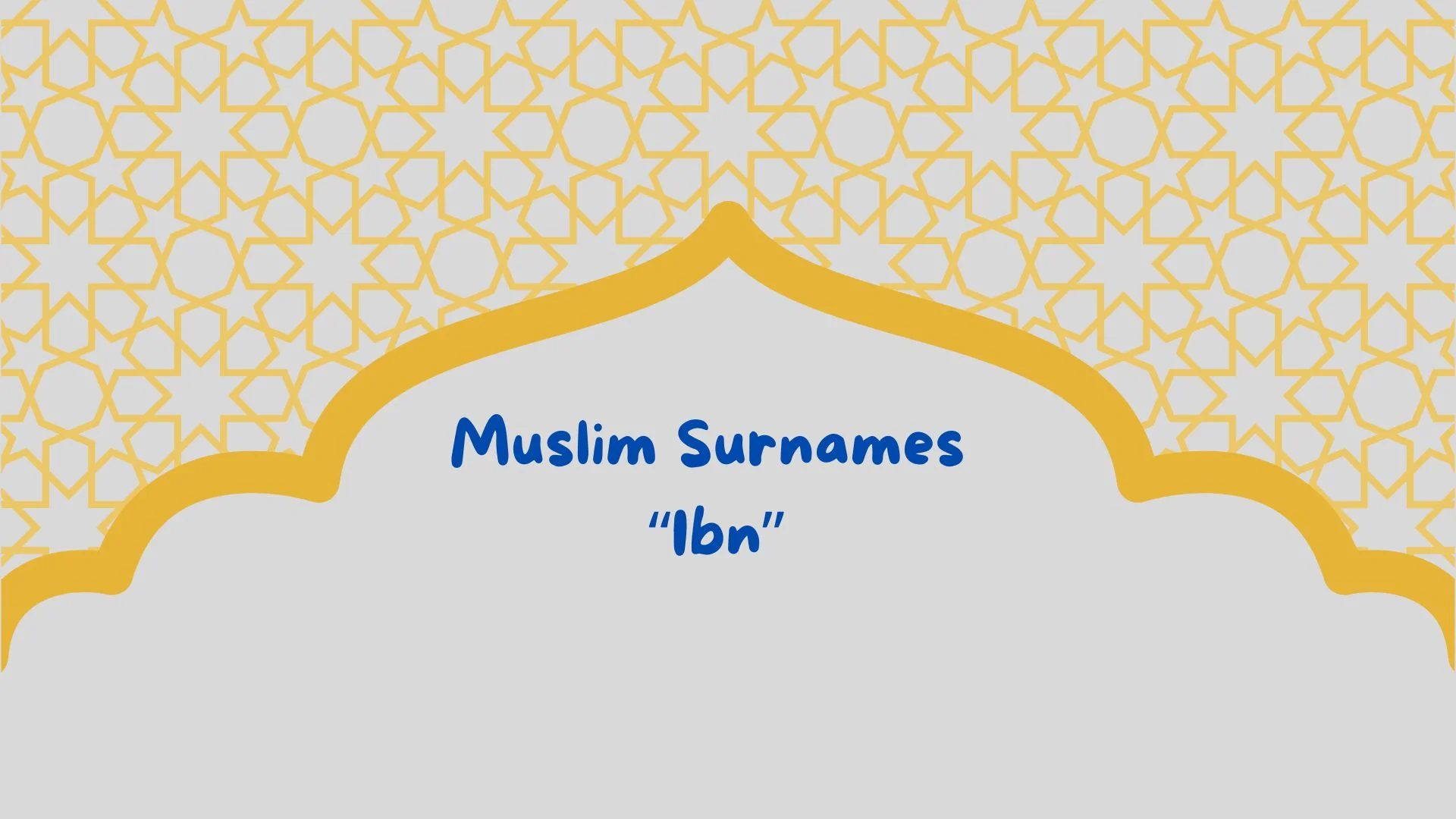Muslim Surnames with Prefix Ibn

In the rich tapestry of Islamic names and surnames, Ibn stands out as a classical element that connects a person to their lineage. The term “Ibn” (ابن) literally means “son of” in Arabic. It is a patronymic form used to denote the relationship between a man and his father, a tradition deeply rooted in Arab culture and Islamic naming practices.
Historically, the use of Ibn was prominent among scholars, historians, philosophers, and other notable personalities, especially during the Islamic Golden Age. It not only honored the father but also preserved genealogical heritage.
Why “Ibn” Matters
- Cultural Significance: It emphasizes respect for one’s lineage and family.
- Historical Context: Many Islamic scholars are known by names that include Ibn followed by their father’s or ancestor’s name.
- Arabic Grammar: The word Ibn is often written as “bin” in modern usage, especially in non-Arab Muslim countries.
Examples of Muslim Surnames with Prefix Ibn
| Name | Arabic | Meaning |
|---|---|---|
| Ibn Sina | ابن سينا | “Son of Sina” |
| Ibn Khaldun | ابن خلدون | “Son of Khaldun” |
| Ibn Battuta | ابن بطوطة | “Son of Battuta” |
| Ibn al-Haytham | ابن الهيثم | “Son of al-Haytham” |
| Ibn Taymiyyah (رحمه الله) | ابن تيمية | “Son of Taymiyyah” |
| Ibn Qayyim (رحمه الله) | ابن قيم الجوزية | “Son of the custodian of al-Jawziyyah school” |
Ibn Sina– Known in the West as Avicenna, he was a Persian polymath who made significant contributions to medicine, astronomy, and philosophy in the 10th–11th century CE.
Ibn Khaldun– A 14th-century Arab historian and sociologist, considered the father of historiography and sociology.
Ibn Batuta– A Moroccan explorer who traveled extensively across Africa, Asia, and Europe in the 14th century.
Ibn al-Haytham– A renowned Arab physicist and mathematician known for his pioneering work on optics and scientific method.
Ibn Taymiyyah (رحمه الله)– A medieval Sunni scholar famous for his writings on Islamic theology and jurisprudence.
Ibn Qayim (رحمه الله)– A student of Ibn Taymiyyah, known for his work in Islamic jurisprudence and spirituality.
Modern Usage of “Ibn“
While traditional in essence, Ibn is less commonly used in contemporary surnames, having been replaced in many regions with fixed family names. However, in academic, religious, and literary contexts, it continues to hold a special place.
Some families may still preserve Ibn or its variants like Bin or Ben (as seen in North Africa) to honor their heritage. For example:
- Bin Zayed (بن زايد) – Son of Zayed
- Ben Ali (بن علي) – Son of Ali
Muslim Surnames with Prefix Ibn
The inclusion ofprefix Ibn in names reflects a deep-rooted connection to ancestry and Islamic tradition. Recognizing these names not only helps in understanding Islamic history but also in appreciating the cultural depth behind Muslim surnames.
If you’re exploring Islamic names, especially those rich in history, Muslim Surnames with Prefix Ibn are a fascinating category to discover.
Read: Banu Tamim Surnames, The Legacy of a Powerful Arab Tribe


1 thought on “Muslim Surnames with Prefix “Ibn””